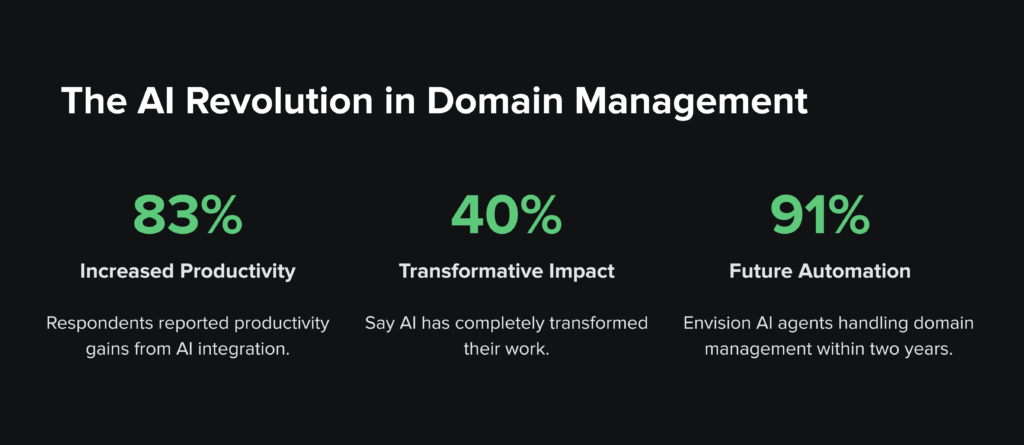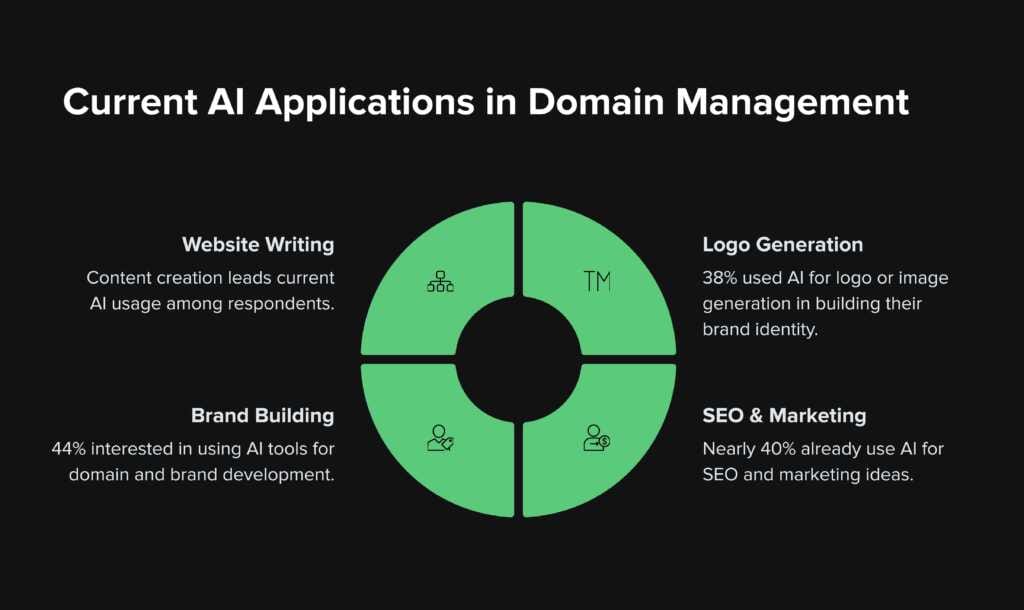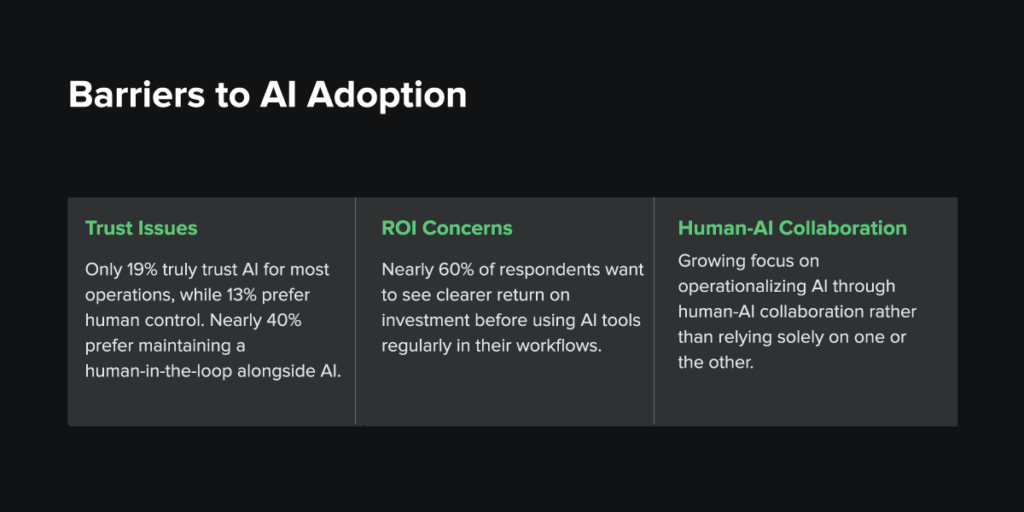
By Sammy Ahmed, General Manager at name.com
The proliferation of artificial intelligence (AI) is rewriting the rules for every industry. When it comes to the internet, one thing is clear: AI is not just shaping how we engage online, but altering the underlying infrastructure of the internet and the most fundamental domain layer.
As everything changes about the way modern developers, vibe coders, and solopreneurs search, register and manage domains, we sought to find out how domain owners are navigating this sweeping change to today’s digital landscape.
In a recent survey, we asked a mix of traditional business owners and tech-savvy entrepreneurs about how they utilize AI for domain management and building website experiences. From brainstorming the perfect domain name to managing complex domain portfolios, the results were undeniable: an overwhelming majority (83%) of respondents reported increased productivity from AI, with 40% saying it transformed their work.
Here’s how domain owners and managers currently use AI and how they anticipate AI will transform their work in the coming years.
Domain management will be automated
Tech giants and niche industry leaders alike are embracing AI agents to automate routine tasks and boost operational efficiency, and companies managing domains are ready to implement this technology into their operations. A total of 91% of survey respondents envision AI agents handling at least some of their domain management, from assistance with routine tasks to complete ownership of critical domain workflows, within the next two years. Another 88% say they would find it valuable to use natural language commands for domain tasks, signaling strong interest in AI-powered automation.

Professionals anticipating nearly all operational tasks to be completed by AI is a clear sign of where the entire internet is headed as AI continuously becomes our day-to-day copilot. This is a huge reason why we recently launched the first API purpose-built for AI agents to buy and manage domains on behalf of users, transforming how solo builders and non-technical founders launch online.
This API is a significant breakthrough for the agentic web, enabling agents like Claude to seamlessly interface with domain infrastructure and automate one of the most essential steps in launching a business: securing a domain.
Content creation leads current AI use cases
Though there’s great anticipation for the promise of AI agents, content creation leads current AI usage for respondents, with website writing, logo generation, and SEO and marketing being top applications. This signals a growing demand for how AI can help creators define their brand. Nearly half (almost 40%) of respondents already use AI to generate SEO and marketing ideas, and another 44% are interested in using AI tools for domain and brand building.

Distinct brand ownership has always been one of the biggest challenges for businesses and web builders as they establish their digital presence, but AI is making it easier than ever. These tools serve as creative and strategic partners, not only enabling but empowering businesses to take control of their brands. With a brand’s character and point of view leading content tone, AI tools lower the barrier to creating unique, high-quality content that resonates with niche audiences.
Hurdles to adoption: trust & ROI
Despite the reported benefits of AI and plans for its implementation, trust remains mixed. As AI agents are predicted to handle more of the operational aspects of domain management, 19% of respondents truly trust AI for most operations, only a little bit higher than the 13% who prefer human control. Nearly 40% of respondents prefer maintaining a human-in-the-loop alongside AI, reflecting a broader preference for blending human expertise with AI capabilities rather than relying solely on one or the other. This underscores a growing focus on operationalizing AI through human-AI collaboration.
Additionally, although the significant use of code generation and productivity tools indicates broad AI integration across business functions, we won’t see mass adoption until organizations know the AI tools they’re adopting generate returns on investment. Nearly 60% of respondents want to see clearer ROI before using AI tools regularly.

Overall, the numbers don’t lie: People are eager to integrate AI into their workflows. With nearly 75% of respondents expecting to use AI for domain operations, from search and registration to management, we anticipate that AI will serve not just as a tool for establishing digital identity, but as a strategic partner.
By now, “we’re in the early innings of AI” likely feels like a cliche. But there is truth to that statement. The findings of this report indicate the vast transformations the internet has undergone during the early adoption of AI, without the proliferation of tools like agents. And as the internet evolves, so will domains and how we manage them.